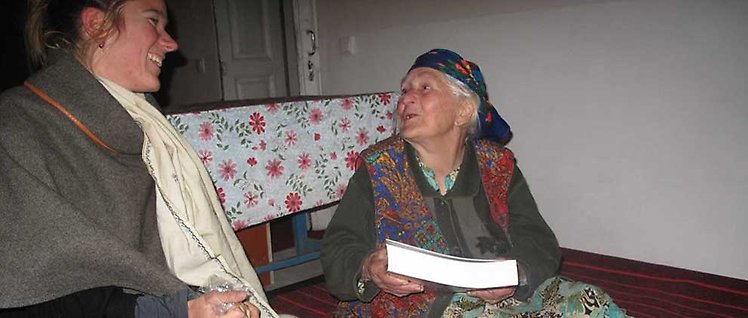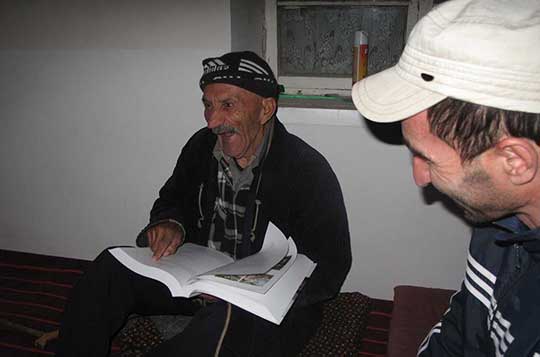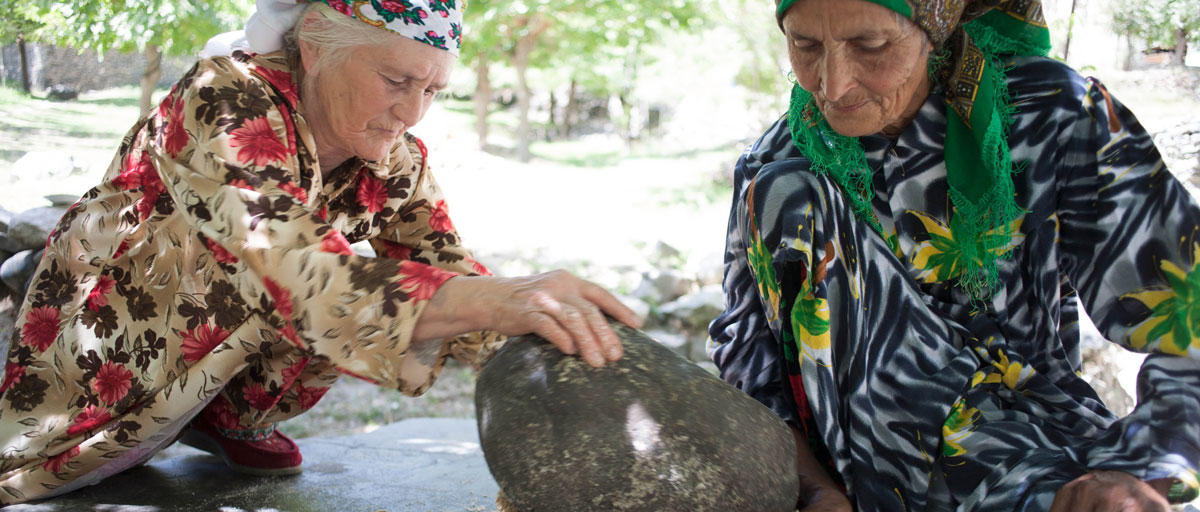Wisdom of the mountains from Van Osch Films on Vimeo.

Watch the trailer for a documentary on food and life in the Pamir mountains. The documentary is closely related to the book "With Our Own Hands" which was co-written by centre PhD student Jamila Haider.
Food and life in the Pamir mountains
"With Our Own Hands" comes home
Book on food and life in the Pamir mountains of Afghanistan and Tajikistan handed out to local communities
- With Our Own Hands tells the cultural and agricultural history of the Afghan and Tajik Pamirs
- It describes Pamiri food and its origins, people’s daily lives, their struggles and celebrations
- It contains nearly 700 pages of English, Tajik and Dari text and many photographs
Few things can unite people better than food. As a sign of gratitude and bringing back knowledge to the source, centre PhD student Jamila Haider and her colleague Frederik van Oudenhoven have presented 1500 copies of their book "With Our Own Hands: A celebration of food and life in the Pamir Mountains of Afghanistan and Tajikistan" to every community in the Afghan and Tajik Pamirs.
Much more than just recipies
The book began as a simple recipe book, to fulfill a promise to a grandmother and to document the rich unwritten knowledge about the unique agricultural biodiversity in the Pamirs.
Over the course of five years, the book became much more. Nearly 700 pages of English, Tajik and Dari text and many photographs, describe the domestication of the mountains, the influence of the Silk Road, the importance of wild food, the resilience of transhumance, and brings into sharp focus conflicting futures of the region.
In October 2015, Jamila Haider and Frederik van Oudenhoven travelled through the mountainous and relatively isolated vast area of the Pamirs to bring back the book to the women and farmers who had shared their knowledge and stories.
Jamila Haider explains that initial reactions were often of surprise and sheer glee.
"Perhaps my favourite reaction was when Akorbirsho, the father of a good friend and ethno-botanist collaborator, read the first recipe he recognised called "Noshkukpa" and started shrieking with laughter. It was the first time he had seen his language and the knowledge usually only uttered around Pamiri stoves within family homes, written down. He proceeded to go through every page of the book, reading much of it out loud."

Akorbirsho's reaction to the first recipe he recognised in the book.
The Mountains Societies Development Support Programme will help distribute them to every community, to ensure that at least one copy is accessible in a public space for everyone.
Jamila Haider says that everyone who has seen the book, whether in the police station, at the bus stop or bazaar, has asked how to get one.
"This was a huge relief. Frederik and I were worried about how people would react to the book since it was written by two foreigners."
However, Jamila Haider is also quick to stress that the book would never be a reality had it not been for the enormous support from dedicated Pamiri scientists who collected recipes, verified information and made all the connections for us.
"And the knowledge of course, is entirely from the Pamirs. All we did was pull it together."
Read more about the journey of the book returning to the Pamirs
Watch video of Jamila Haider presenting the book to the women and farmers who had shared their knowledge and stories:
Related info
Jamila Haider is a PhD student at the Stockholm Resilience Centre working to better understand the relationship between agricultural biodiversity and persistent poverty and sources of resilience in biocultural landscapes. Jamila’s research is driven in a large part by her experience working as an international development practitioner with the Aga Khan Foundation in Tajikistan and Afghanistan, and the real and urgent need to uncover endogenous development pathways.







